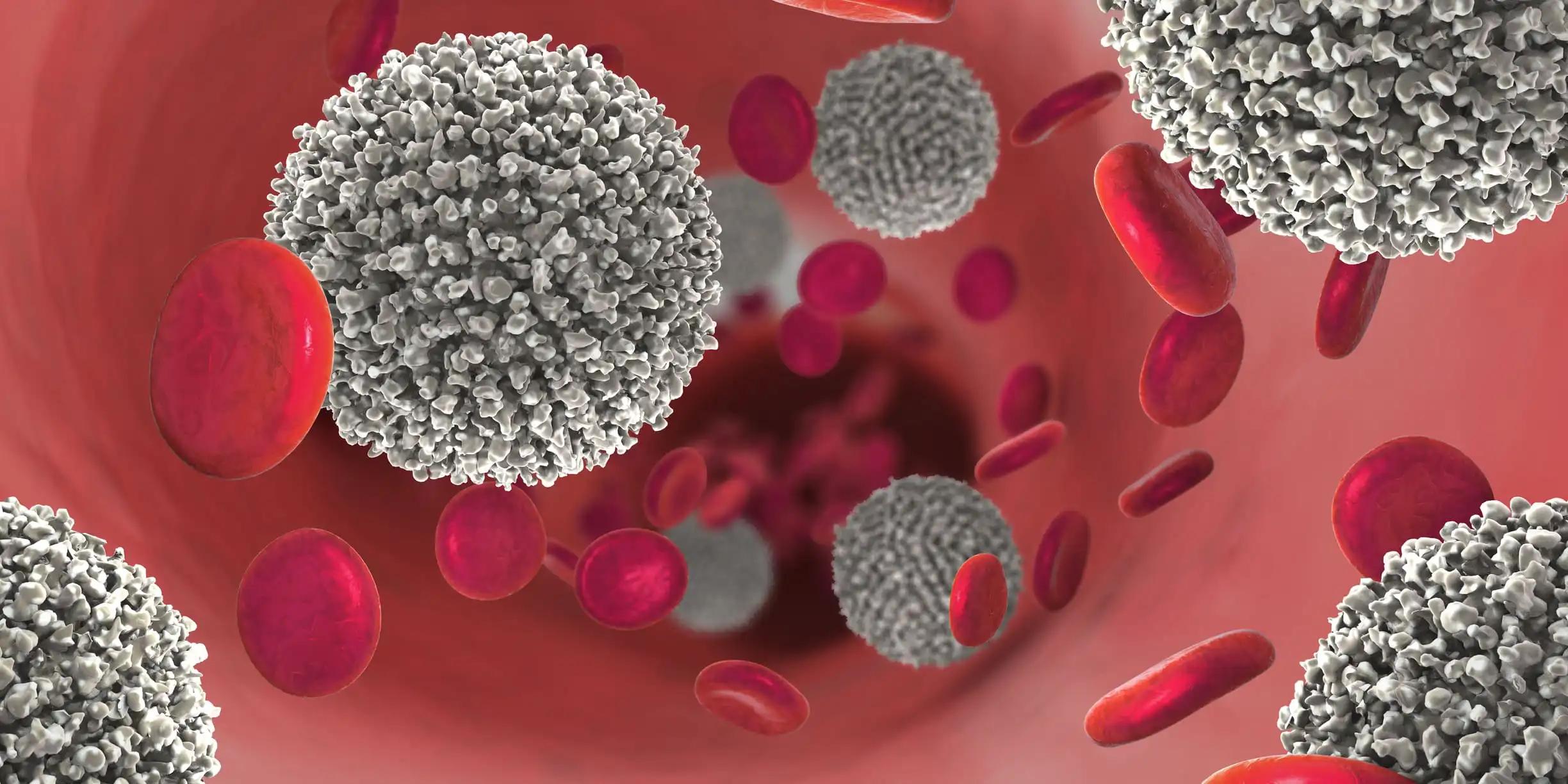KEY TAKEAWAYS
- The phase I/II trials aimed to evaluate the pirtobrutinib’s enduring efficacy and safety in heavily pretreated CLL/SLL patients relapsed post-cBTKi.
- The various endpoints were ORR, DoR, PFS, OS and safety.
- Pirtobrutinib post-cBTKi exhibited impressive responses, durable benefits, and suggests longer PFS in BTKi-naive CLL/SLL patients, warranting further investigation.
Covalent Bruton tyrosine kinase inhibitors (cBTKi) have advanced the treatment of chronic lymphocytic leukemia/small lymphocytic lymphoma (CLL/SLL), but treatment failure can occur. Sequential therapy with non-covalent BTK inhibitor pirtobrutinib, following progression on cBTKi, is a promising approach, as B-cell lymphoma 2 protein inhibitor (BCL2i) venetoclax has been a primary option in such cases.
Jennifer A Woyach and her team spearheaded the study that aimed to evaluate the efficacy of pirtobrutinib in post-cBTKi CLL/SLL, including subgroups with or without prior BCL2i exposure, utilizing data from the BRUIN study (NCT03740529) with a follow-up exceeding 2 years.
Patients with previously treated CLL/SLL received pirtobrutinib. Key endpoints, including overall response rate (ORR) (including PR-L), duration of response (DoR),progression free survival (PFS), overall survival (OS), and safety, were assessed by an independent committee using the 2018 iwCLL response criteria. Data cut-off as of May 5, 2023, was employed.
The study included 282 CLL/SLL patients previously treated with cBTKi. Median age was 69 years (range, 36-88), 68% male, and median prior therapies were 4 (range, 1-11). Of these, 154 ((Naïve 55%, BCL2i-N) and 128 (Exposed 45%, BCL2i-E) received or did not receive prior-BCL2i therapy, respectively. BCL2i-N patients had fewer prior therapies than BCL2i-E patients (median prior therapies 3 and 5, respectively). The ORR for all post-cBTKi patients was 72% (95% CI, 66.4-77.1), including PR-L, which was 82% (95% CI, 76.5-85.9). In a subgroup with one prior cBTKi-containing therapy line and second-line pirtobrutinib, the ORR including PR-L was 89.5% (CI 95%, 66.9-98.7).
The ORR including PR-L was 83.1% (95% CI, 76.2-88.7) for BCL2i-N and 79.7% (95% CI, 71.7-86.3) for BCL2i-E. Median DoR was 18.4 months (95% CI, 15.3-20.4) for all cBTKi pre-treated patients, 24.9 months (95% CI, 18.4-32.0) for BCL2i-N, and 14.8 months (95% CI, 12.0-17.4) for BCL2i-E. With a median follow-up of 27.5 months, the median PFS was 19.4 months (95% CI, 16.6-22.1) for all cBTKi pre-treated patients, 23.0 months (95% CI, 19.6-28.4) for BCL2i-N, and 15.9 months (95% CI, 13.6-17.5) for BCL2i-E. With a median follow-up of 29.3 months, the median OS was not estimable for all cBTKi pre-treated patients, BCL2i-N, and BCL2i-E; the 24-month OS rates were 73.2% (95% CI, 67.4-78.2), 83.1% (95% CI,75.9-88.2), 60.6% (50.9-68.9), respectively.
In the cohort of CLL/SLL patients (N=282), the most common treatment-emergent adverse events (TEAE), irrespective of attribution, included fatigue (36.9%), diarrhea (28.4%), cough (27.3%), and contusion (26.2%). Neutropenia/neutrophil count decreased was the most frequent Grade ≥3 TEAE (28.4%). Grade ≥3 TEAEs of hypertension (4.3%) and atrial fibrillation/flutter (1.8%) were infrequent.
AE profile of BCL2i-N and BCL2i-E patients was generally similar. Although Grade ≥3 neutropenia/neutrophil count decreased was higher in BCL2i-E patients (36.7% and 21.4%), this may be attributed to the higher baseline neutropenia frequency in BCL2i-E patients (27.3% and 11.0%). Overall, 7 (2.5%; 4 BCL2i-N, 3 BCL2i-E) patients experienced treatment-related adverse events leading to pirtobrutinib discontinuation.
The results demonstrated that pirtobrutinib maintains promising and durable efficacy in heavily pretreated CLL/SLL patients post-cBTKi, with high ORR regardless of prior BCL2i status. Notably, BCL2i-N patients exhibit longer PFS, emphasizing the potential significance of sequential BTK pathway inhibition in CLL/SLL treatment. Research is sponsored by Loxo Oncology, Inc.
Source: https://ash.confex.com/ash/2023/webprogram/Paper185852.html
Clinical Trial: https://clinicaltrials.gov/study/NCT03740529
Woyach JA, Brown JR, Ghia P, et al.(2023) ‘’Pirtobrutinib in Post-cBTKi CLL/SLL: ~30 Months Follow-up and Subgroup Analysis With/Without Prior BCL2i from the Phase 1/2 BRUIN Study.’’ Presented at ASH 2023 (325).



